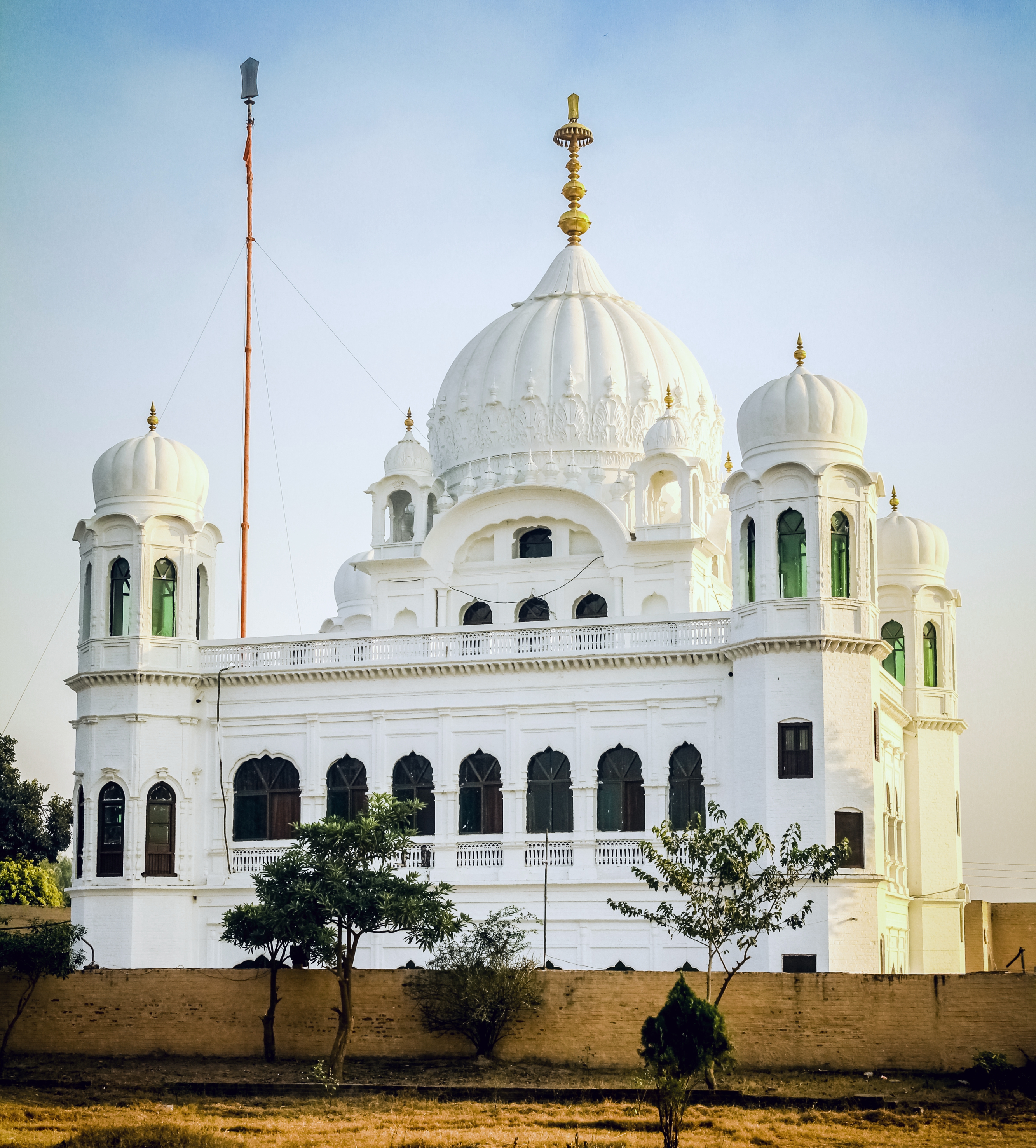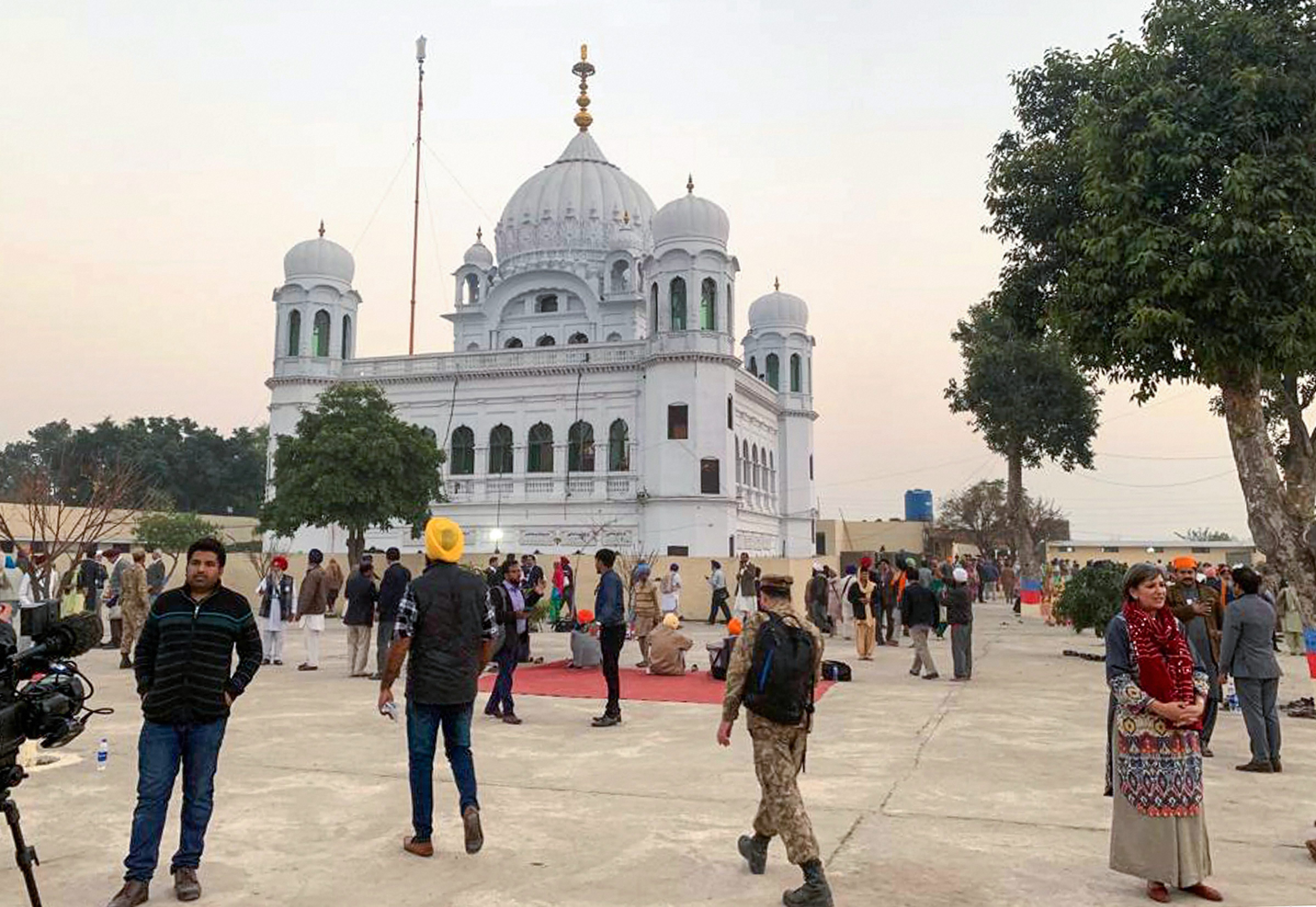India on Friday called for rescheduling the April 2 meeting on the Kartarpur corridor till its concerns about Islamabad packing the reconstituted Pakistan Sikh Gurdwara Prabandhak Committee (SGPC) with pro-Khalistan elements are addressed, a decision that the neighbour termed “incomprehensible”.
India’s viewpoint was conveyed to the Pakistan deputy high commissioner, who was called to the external affairs ministry.
The ministry said India had shared its concerns and sought clarifications on reports that controversial elements had been appointed by Pakistan to the SGPC, which controls the gurdwaras in that country. The proposed corridor will connect Guru Nanak Dev’s final resting place in Kartarpur to the Dera Baba Nanak shrine in Punjab’s Gurdaspur district in India.
New Delhi has told Islamabad that the next meeting on the modalities can be scheduled at an appropriate time after receiving Pakistan’s response.
According to India, five of the 10 members of the reconstituted Pakistan SGPC are pro-Khalistan and some of them have links with the Jamat-ud-Dawah, headed by alleged 26/11 mastermind Hafiz Sayeed.
At the first meeting on the Kartarpur corridor on March 14 at Attari, India had made it clear that Pakistan should insulate Indian pilgrims from pro-Khalistan elements.
Over the past year, pro-Khalistan elements have staged rallies outside gurdwaras in Pakistan during visits by Indian pilgrims and invariably diplomats from India’s mission in Islamabad were barred from accessing the visitors.
Walls of Pakistani gurdwaras have been plastered with pro-Khalistan posters like “Never forget 1984” and “Khalistan Referendum 2020 is Resistance Against Indian Occupation of Punjab”. India’s fear is that Pakistan may use the Kartarpur corridor to promote this campaign.
Against this backdrop, sources said the Pakistan government’s decision to include as many as five pro-Khalistan members in the SGPC raised serious concerns and questions about the neighbouring country’s intentions in opening the Kartarpur corridor.
“While we are keen to conclude the agreement on the corridor at the earliest and are committed to it, we need clarity on this issue and also how they intend to bridge the substantive gaps in our positions on other modalities, a source said, adding that India wants a meeting not just for optics but also substantive decision-making.
Pakistan reacted sharply to India’s decision. “The (April 2) meeting was to discuss and find consensus on outstanding issues,” tweeted Mohammad Faisal, the spokesperson in the Pakistan foreign ministry. “Last minute postponement without seeking views from Pakistan and especially after the productive technical meeting on March 19 is incomprehensible,” he added.
Earlier in the day, the Pakistan foreign office spokesperson had formally invited Indian journalists to apply for visas to cover the April 2 meeting at Wagah on the India-Pakistan border in Punjab.
The other issues that need to be resolved pertain to the number of pilgrims to be allowed daily, the days the corridor will remain open, the citizenship of those who will be able to access the corridor and the documentation required.
India wants Pakistan to allow 5,000 pilgrims to use the corridor daily, and increase the number to 10,000 on festival days. Islamabad, however, is insisting on only 500-700 pilgrims a day, citing infrastructure issues.
Pakistan wants to keep the Kartarpur corridor open only on some days, while India wants daily assess. Pakistan has agreed to India’s argument that the corridor should be open to all Indians and not just Sikhs, but is not yet willing to allow persons of Indian origin.
As for the documentation, New Delhi’s contention is that Indian pilgrims should be allowed to travel on their passports since the list of people will be cleared by both sides in advance and there is no stay involved as it is a day’s pilgrimage. While Pakistan has agreed to make the pilgrimage visa-free, it is insisting on a permit with a fee, which India has contested.
The differences apart, the Narendra Modi government is keen to drive home the message that it is committed to opening the Kartarpur corridor. In line with this, India has called for a meeting of technical experts in mid-April to resolve issues pertaining to hydrology and management of floodwater around the Zero Point that has been agreed to.











